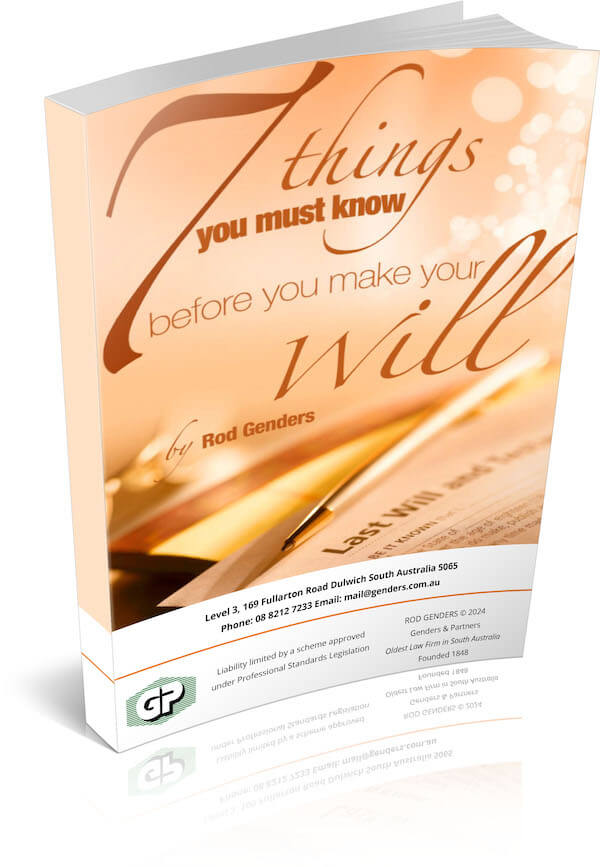
In our law practice, we talk a lot about estate planning for families.
It’s the most common application for our services—parents want to be able to protect the money they’ve saved and the assets they’ve accrued for their children, and provide an easy way for their assets to be passed down to their children when they die.
However a person who is single with no children—or, for that matter, a childless person whose spouse has passed away—may need estate planning services even more.
There can be a lot more uncertainty for someone with no dependents and no obvious heirs, from confusion about who should receive their assets to uncertainty about who can make difficult decisions about life-extending care on their behalf.
In your situation, you might have some beloved pets to take care-of in your Will. What about some charitable bequests, to make the world a better place?
Even if you’re fairly young, you still need a Will.
In fact, people in their 20s and 30s are often worth more dead than alive.
This is because most Australians have superannuation, and most super has a life insurance component that will need to be paid-out somewhere when you die.
No matter what, your remaining assets must go somewhere.
You have an opportunity while you’re still alive to direct how this process goes instead of leaving your estate to the government (Public Trustee) to execute and distribute.
If there are family members, close friends, or other people in your life that you’d like to receive your remaining assets, planning your estate with us at the oldest law firm in South Australia – Genders and Partners, established 1848 – is a great way to draw up an effective plan to ensure that this is what happens after you’re gone.
Even if you think you don’t have much of an estate, working with our team can help identify assets of yours that you may not have considered passing down.
Though estate planning has a lot to do with what happens after you’ve died, there are crucial elements in a thorough plan that can directly affect you while you’re still alive.
Illness and accidents can happen to anyone at anytime.
If you lose the ability (even temporarily) to sign documents and make decisions in your own best interests, it can be very powerful insurance to have created agency documents to appoint one or more trusted persons to act as your agent, so they have the lawful authority to step-in and assist you when you really need help.
There are two main types of agency documents available in Australia for estate planning: one for legal & financial matters (known as Enduring Power of Attorney) and one for accommodation, lifestyle, health care and medical matters (known as an Advance Care Directive).
End-of-life planning can be confronting, but it presents a good opportunity to consider what medical measures you’re comfortable with should you be unable to dictate your wishes for your own care.
A good estate plan takes precautions to outline these wishes ahead of time, such as procedures for falling into a coma, which leads to the next point: In your Advance Care Directive, you can create a Binding Refusal of Medical Treatment in certain circumstances.
This is a Do Not Rescitate (DNR) command.
Many people do not like the thought of being kept alive artificially if there is no hope, and so they create a DNR command in their estate planning documents.
If you’ve thought about end-of-life or life-extending care, you’ve likely considered who could enact your wishes on your behalf.
Designating a medical agent or health care proxy is an essential element to include in your estate plan.
If you have someone you know to give this responsibility, putting it into an estate plan gives you legal assurance that your substituted decision maker—and, by extension, your care wishes—will be heard.
In a similar manner, the distribution of your assets in accordance with your estate plan requires an executor and Trustees.
This person or small team of people will make sure that your estate plan is fulfilled when the time comes to execute it.
They will be in charge with overseeing your living trust and handling the details of asset distribution in accordance with the plan you’ve drawn up.
In both of these cases, don’t worry if you don’t have a family member or someone immediately in mind to designate— Genders and Partners will help you make an estate plan that evolves with your needs and walk you through the whole process.
To learn more about how we can help you protect yourself, your family and your assets through modern integrated estate planning as a single person, visit our website, explore our blog, and schedule your complimentary consultation today!
There are thousands of lawyers in Australia, but very few of them truly specialise in Wills & estates.
Lots of them will ‘have a go’ at making a Will for you, but do you really want to entrust your family’s future to them, or do you want the peace-of-mind that comes from specialist legal advice and representation?
This is a specialised area of law, and if you pay peanuts, you’re likely to get monkeys.
For more information on Wills & estates and creating a modern integrated estate plan to guard against intestacy, or other estate planning topics, contact the oldest law firm in South Australia – Genders and Partners (established 1848 and specialising only in Trusts, Wills and Estates) to explore our articles and visit our website today to schedule your free and convenient telephone consultation!
SPECIAL REPORT “7 Things You Must Know Before You Make Your Will”
In this report you will Learn:

Why home-made Wills can be a LOT more expensive than you might think.
The secret weapons used by the rich & powerful to protect their assets, and transfer their wealth two or three generations ahead.
How Estate and Trustee Companies make BIG money from “free” Wills.
The Most Common Estate Planning Mistakes, how they can cost your family a fortune, and How to Avoid Them.
The Elements of a Sound Estate Plan – why a Will alone is not enough.
How to Make Sure Your Assets Stay in Your Family and are not lost to creditors, lawsuits or ex-spouses.
How to guard against challenges to your Estate after you’re gone.







